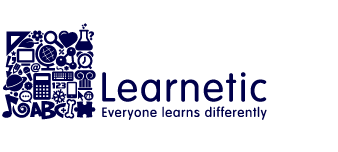e-Learning trends in 2020/2021: our lessons, achievements and hopes
We’ve asked Artur Dyro (CEO of Learnetic), Waldemar Kucharski (Board Member) and Piotr Mróz (Business Development Director) about eLearning trends in 2020/2021 – the things they’ve achieved, what they’ve learned, and what they’re hoping for in 2021. Here’s what they said.
Artur Dyro
The greatest achievement of 2020:
Pearson is a publisher that needs no introduction. The fact that they decided to rely on our LMS technology (we’ve created their edesk.pearson.pl platform) and asked us to digitize their textbooks shows how strong is the Learnetic brand and how highly valued are our solutions.
The most valuable lesson of 2020:
Teachers and students saw that, just like e-mails for communication, solutions such as LMS platforms and interactive materials are a real aid in learning. We’ve been mastering distance learning with all its advantages and disadvantages; it is definitely worth developing these positive aspects — and stop identifying learning with the school building
The greatest hope for 2021:
I simply hope that the good practices developed during the school lockdown will not be forgotten once educational institutions reopen.
Waldemar Kucharski
The greatest achievement of 2020:
I have been focusing on the interactive and hybrid aspects of Special Educational Needs for years. In 2020, our mTalent series won the main prize in the “Świat Przyjazny Dziecku” (“Child-Friendly World”) competition. In 2019, it was awarded with BELMA – a special award for the best educational materials in Europe at Buchmesse, Frankfurt. Now the mTalent was shortlisted for Bett Awards 2021 in “Special Educational Needs Solutions”. Even though I approach all awards with a certain distance, the opinions of therapists, children and their parents really show how much the mTalent series is trusted.
The most valuable lesson of 2020:
Our free eConference on Special Educational Needs, which we have organized shortly after the schools closed, attracted more than a dozen thousand viewers. It showed how crucial it is to raise the subject of SEN in the context of eLearning and distance learning — and how much children with difficulties were left outside the system.
The greatest hope for 2021:
I hope that eLearning will start to be perceived as what it truly is — a real ally of therapy. The possibility of hybrid work and its good practices should have a permanent place in the therapeutic process of our youngest.
Piotr Mróz
The greatest achievement of 2020:
This year we are particularly excited about the four (!) new contracts we have signed with our great partner from Norway, Cyberbook. Two contracts for our educational content, EnglishNow! and PrimaryMath, one for mAuthor, our powerful authoring tool, and one for the new version of mCourser Premium — the newest version of our platform for content distribution and management. We’re also happy to have delivered additional content packages to users from Fiji — mCurriculum and PrimaryMath.
Last but definitely not least, we’re honored to have prolonged our strategic partnership with a company delivering our solutions to the Ministry of Education of the United Arab Emirates. This wide range of customers shows that eLearning became something much more than just an idea of education enrichment: it’s a way of learning all over the world.
The most valuable lesson of 2020:
Noticing that quite a large number of teachers still prefer using simple solutions like Zoom or Google Meets than more comprehensive tools dedicated for managing the teaching and learning processes. Even though such systems would much better cater to their needs, some teachers are still reluctant to devote a bit of time to get acquainted with them.
The greatest hope for 2021:
Correlated with the lesson above. I hope that after mixed experiences with digital tools not created for remote teaching the teachers will shift their focus to appropriate, advanced solutions like LMS platforms. The advantages are significant. Contrary to the popular belief, these solutions will reduce, not increase their workload, and give them new opportunities that other systems could never offer. I hope we will be able to reach the teachers with this message and bust the myth that remote teaching is work-consuming and problematic.





